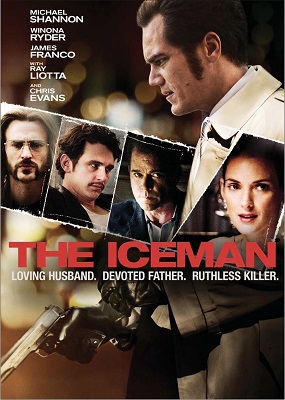
It has taken me days to write this review. When the movie started, I remember thinking “Kuklinski, who?” while making a mental note to further investigate this serial killer. By the time the movie was over I felt I had loved it: reminiscing the sixties and seventies, the aura about mobsters, the killer’s fascination with the hunting aspects when assigned a prey, Michael Shannon’s capacity to swing moods while the script unveiled a man simultaneously full of anger and poise, the character’s capacity to conceit who he was and what he did for a living. “My kind of movie” I sentenced. My problem with the movie began afterwards, when I researched his biography and I discovered the Kuklinski tapes recorded at the Trenton State Prison.
Interviewer: “What do you feel about killing?”
Kuklinski: “I don’t.” “It doesn’t bother me.” “It doesn’t bother me at all.” “I don’t have a feeling one way or the other.” “I think if I had a choice, I wouldn’t.”
Ok I was hooked. So, after watching not just these tapes but the 2001 HBO Interview and some other references, the script could have been so much more. His background, his abusive father who killed one of his brothers, his cruel catholic mother, his being bullied at church and school by nuns and peers, his first killing and cover-up taking place at the early age of thirteen, his placid enjoyment of finally feeling in control, and his relationship with his other brother who was convicted for rape and murder. He was not a loving husband either. There were outbursts of rage and domestic violence in which he used to threaten and beat up his wife while selling to society the image of a perfect household. Perhaps his family didn’t know about the nature of his work but their lives got astray into his inferno.
Nonetheless, I am sustaining my four-star review; it’s not the script’s fault that now I would have liked to see the nuances that shaped his life and the depths of his personality further explored.

